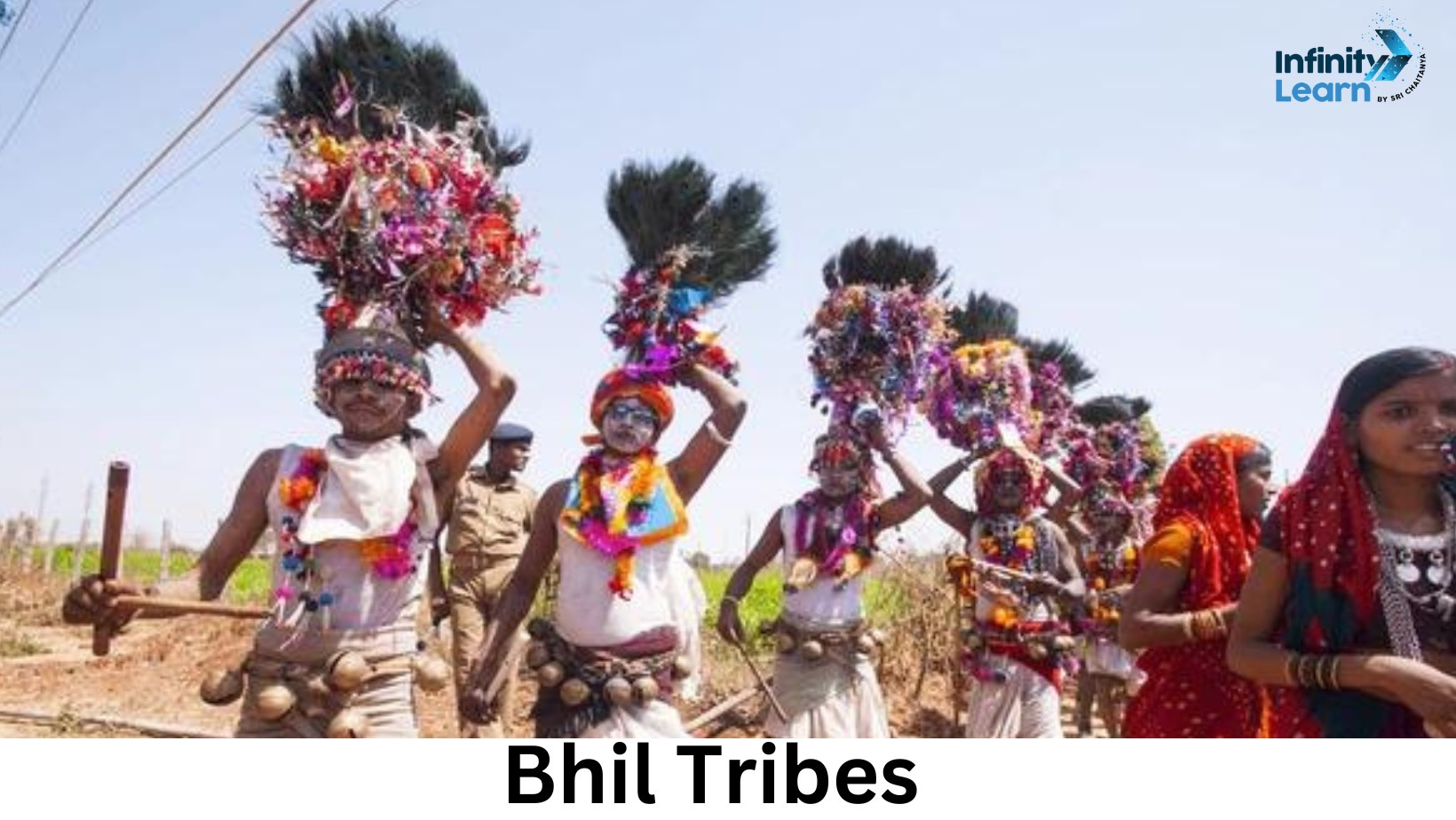Table of Contents
The Bhil tribes are one of the largest indigenous communities in India. They mainly live in the states of Rajasthan, Gujarat, Madhya Pradesh, and Maharashtra. The Bhil people have a rich cultural heritage and unique traditions that have been passed down through generations.

Origin and History
The Bhils are believed to be one of the oldest tribes in India. Their name is derived from the word “Bhil,” which means “bow” in the Dravidian language, reflecting their traditional skill as archers.
Lifestyle and Occupation
The Bhil tribes traditionally live in small villages in forested areas. Their houses are typically made of mud and thatch. The Bhils are primarily farmers and hunters, relying on agriculture for their livelihood. They grow crops like maize, wheat, and barley. Hunting and fishing are also important activities for the Bhils, especially in regions where farming is difficult.
Culture and Traditions
The Bhils have a vibrant culture with colorful festivals, dances, and music. Some key aspects of Bhil culture include:
- Ghoomar Dance: A traditional folk dance performed by Bhil women during festivals and special occasions.
- Gavari Festival: A unique festival celebrated for 40 days in honor of the goddess Gavari, involving music, dance, and dramatic performances.
- Art and Craft: Bhil art is known for its intricate designs and vibrant colors. They create beautiful paintings, beadwork, and pottery.
| Tribes of Nagaland | Tribes of Manipur |
| Khasi Tribe | Gond Tribes |
Language and Religion
The Bhils speak their own language, called Bhili, which has several dialects. Many Bhils also speak the regional languages of the states they live in, such as Hindi, Gujarati, or Marathi. The Bhils practice a blend of animism, Hinduism, and tribal customs. They worship nature and ancestral spirits, and many Bhils also worship Hindu gods and goddesses.
Social Structure
The Bhil community is organized into clans, with each clan led by a headman who is responsible for settling disputes and making important decisions. The Bhils follow a patriarchal system, where the eldest male member of the family holds authority.
Modern Challenges
Despite their rich cultural heritage, the Bhil tribes face several challenges in modern times. Many Bhils live in poverty and lack access to education and healthcare. Deforestation and loss of traditional lands have also impacted their way of life. Efforts are being made by the government and various organizations to improve the living conditions of the Bhil people, including initiatives for better education, healthcare, and economic opportunities.
Bhil Tribes Foods
The main foods of the Bhils include maize, onion, garlic, and chili, which they grow in their small fields. They also gather fruits and vegetables from local forests. Wheat and rice are typically reserved for festivals and special occasions. They make their own weapons, such as bows and arrows, swords, knives, and axes.
FAQs On Bhil Tribes
Which is the largest tribe in India?
The largest tribe in India is the Bhil tribe. They are spread across several states, including Rajasthan, Gujarat, Madhya Pradesh, and Maharashtra. Known for their rich cultural heritage, the Bhils are traditionally hunters and gatherers, and they have a significant presence in India's tribal population.
Which is the largest tribe in Rajasthan?
In Rajasthan, the Bhil tribe is the largest. They have a deep-rooted presence in the state and contribute significantly to its cultural diversity. The Bhils in Rajasthan are known for their vibrant traditions, folk dances, and unique way of life, which has been preserved over centuries
Why is Bhil tribe famous?
The Bhil tribe is famous for its rich cultural heritage, traditional art forms, and unique lifestyle. They are skilled in archery, which is a significant part of their identity. The Bhils are also known for their traditional dances, such as the Ghoomar and Gair, and their colorful festivals that showcase their deep connection to nature and their ancestors.
Who is the god of Bhils?
The god of the Bhils is Eklavya, a legendary figure in Indian mythology. Eklavya is revered as a symbol of dedication and loyalty. He is known for his unwavering commitment to learning archery, even without the formal guidance of a teacher, which resonates deeply with the Bhil community's values and traditions.
Where is the Bhil tribe found in Rajasthan?
The Bhil tribe is primarily found in the southern and southeastern parts of Rajasthan. Districts like Udaipur, Dungarpur, Banswara, and Chittorgarh have significant Bhil populations. These areas are characterized by hilly terrain and forests, where the Bhils have lived for generations, maintaining their traditional lifestyle and customs.









